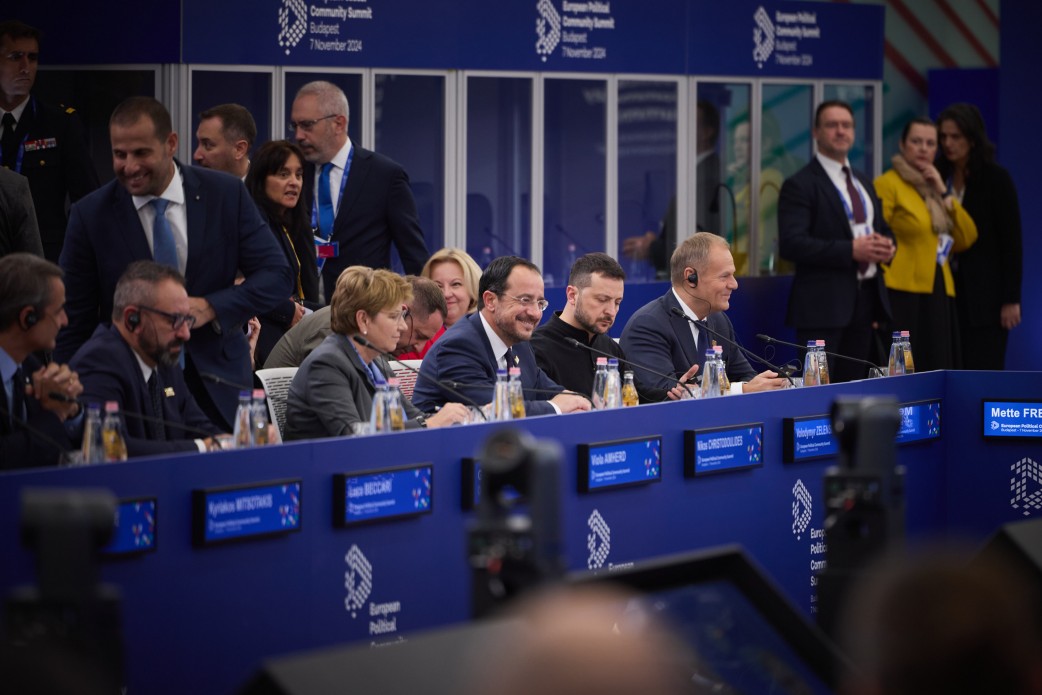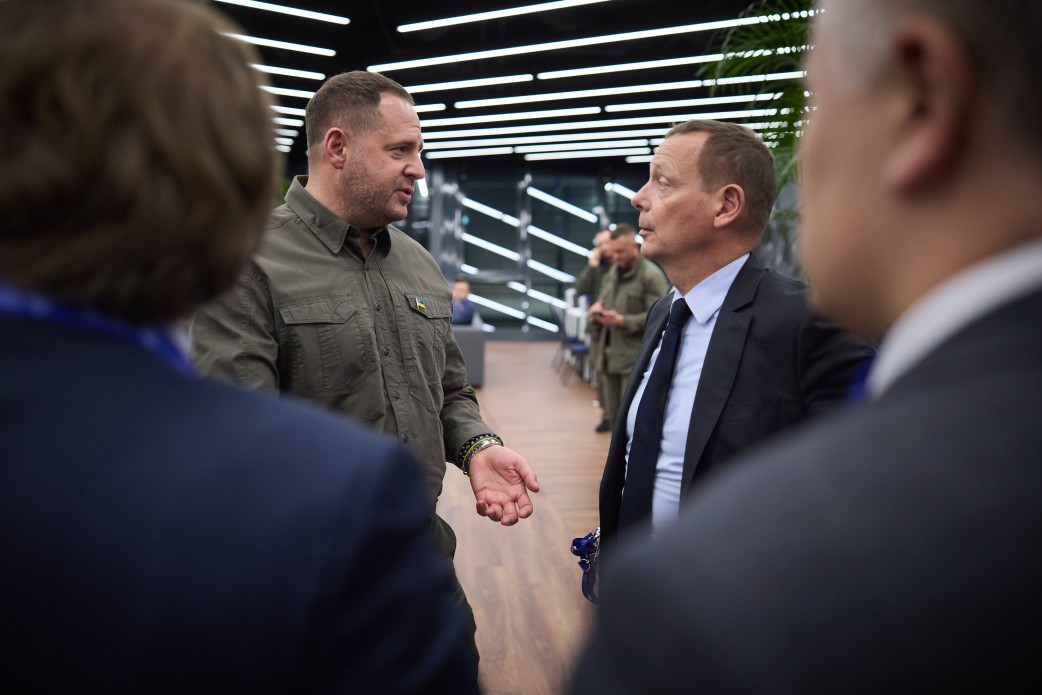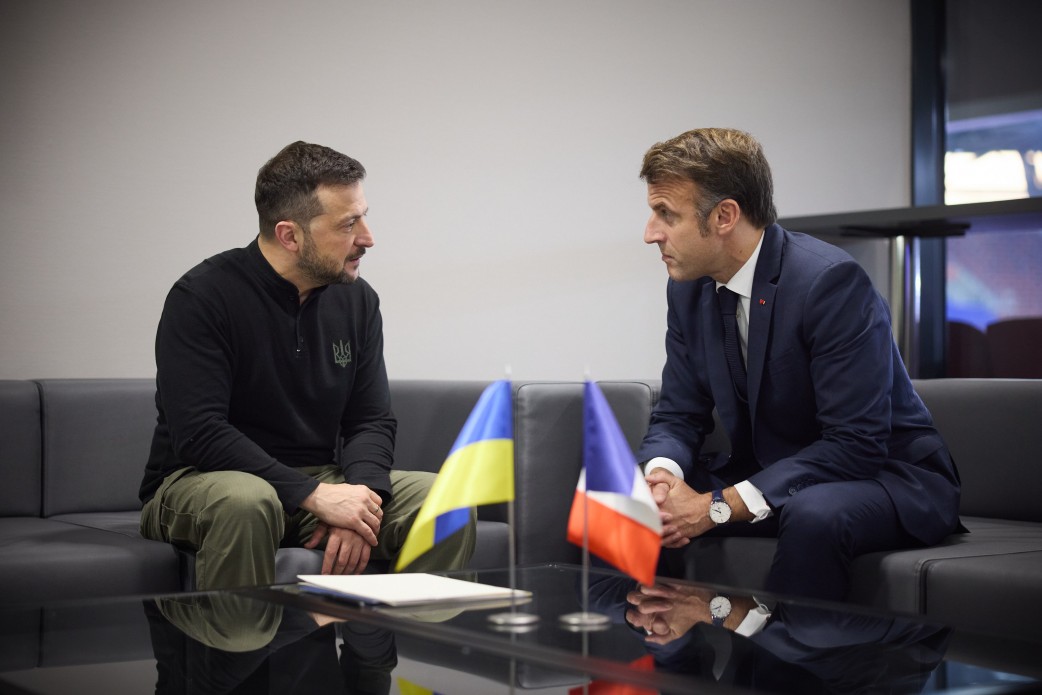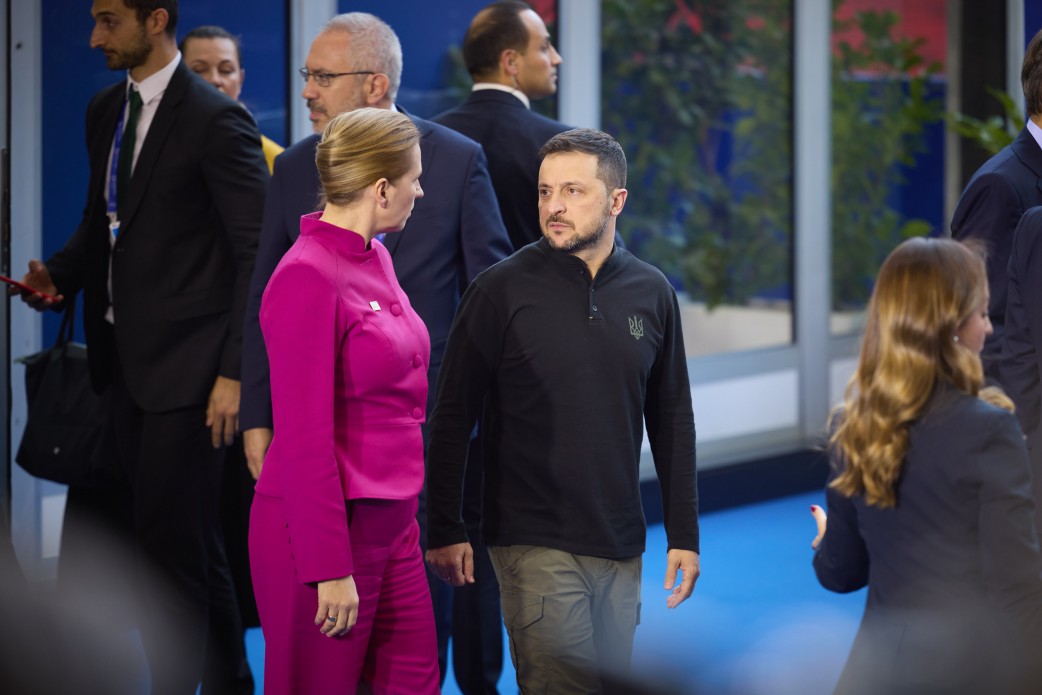Ukrainian President Volodymyr Zelenskyy made his first visit to Hungary since Russia's full-scale invasion, attending the European Political Community (EPC) summit in Budapest on 7 November 2024. The visit came at the invitation of Hungarian Prime Minister Viktor Orbán, whose country currently holds the EU Council presidency.
The timing was particularly significant, occurring just after Donald Trump's victory in the US presidential election and amid growing evidence of North Korea's direct involvement in the war against Ukraine.
The summit brought together leaders from 42 European nations to discuss critical issues including Russia's war against Ukraine, the escalation in the Middle East, illegal migration, and economic security, according to official summit documents. However, tensions emerged immediately as Zelenskyy and Orbán presented starkly different visions for ending the Russia-Ukraine war.
A “different” European gathering
In a telling contrast to previous summits, Deutsche Welle (DW) correspondent noted the conspicuous absence of EU flags that had adorned Granada's boulevards during the last gathering. Instead, visitors to Budapest's airport were greeted by massive photographs of children at play and proclamations welcoming them to "Hungary, the country of family values" – a statement of the host nation's political positioning.
"This is a good opportunity to discuss with European leaders all the issues that unite us," European Commission President Ursula von der Leyen declared upon arrival, as reported by DW. The timing couldn't have been more crucial – the summit convened just hours after Trump's election victory and amid the collapse of Germany's governing coalition, adding layers of complexity to the already challenging diplomatic landscape.

Albanian Prime Minister Edi Rama, designated host of the sixth EPC summit, characterized the gathering as a forum for "countries with 'E' without 'U' - Europe without the union," highlighting its unique position in fostering broader European dialogue.
"This forum has a special energy. Unlike other forums, there is much freer exchange of thoughts and the possibility to touch dangerous topics," Rama stated to DW.
Zelenskyy's address: North Korean threat and European response
President Zelenskyy's speech, notably absent from the official livestream as reported by Radio Free Europe/Radio Liberty (RFE/RL), delivered a stark message to his European counterparts. Speaking immediately after Hungarian Prime Minister Viktor Orbán's opening remarks, Zelenskyy confronted what he viewed as dangerous appeasement rhetoric.
“And some of those present here strongly advocated that Ukraine should make ‘concessions’ to Putin. This is unacceptable for Ukraine and suicidal for the entire Europe," Zelenskyy declared. He continued with a pointed analogy: “Should Europe hope for Kim Jong Un's sympathy that he will also leave Europe alone? No strong leader who has helped build a united, strong and peaceful Europe could even imagine that."
The Ukrainian president elaborated on the North Korean threat, revealing an alarming development: "North Korea is now, in effect, waging war in Europe. North Korean soldiers are attempting to kill our people on European soil.” He added that “if there is no political pressure, if there are no decisions, North Korea will increase the number of its soldiers because Putin is always watching the world for reactions."

It is important to note that while Orbán's and French President Emmanuel Macron's addresses were broadcast, Zelenskyy's remarks were not shown to journalists during the official broadcasting. Hungarian organizers later stated that the footage was provided to the Ukrainian president's team, though Ukrainian officials confirmed they had not requested any broadcast restrictions.
The cease-fire controversy
One of the summit's most contentious issues emerged around cease-fire proposals. Viktor Orbán, positioning himself as a "peace advocate" in contrast to those "who want to continue financing this war," repeatedly called for immediate cease-fire negotiations.
"So what I'm arguing in favor is to have a ceasefire which can provide room and time for the warring parties to have communication and to start negotiating about the peace," Orbán stated at his concluding press conference. "But stop killing each other now, and then we can talk about what constitutes an acceptable, lasting, long-term peace for all parties."
Zelenskyy's response was unequivocal. In his post-summit press conference, he explained:
"There's very dangerous rhetoric now regarding a cease-fire. [...] 'First a cease-fire, then we'll see.' This 'first cease-fire, then we'll see' is a terrifying challenge for all our citizens."
He said that the 2014 cease-fire had ultimately led to a full-scale invasion, emphasizing that any new cease-fire without security guarantees would merely provide Russia time to prepare for further aggression.
Commenting to DW, he did not mince words:
"A leader who proposes a ceasefire without security guarantees is just a windbag," Zelenskyy said, reminding that the Hungarian Prime Minister actively opposes Ukraine's NATO membership. "This is nonsense and disharmony, because a ceasefire happens when the warring state, especially the victim, knows that it will have security guarantees."
Trump factor and peace prospects
The shadow of Trump's election victory loomed large over the proceedings. Zelenskyy revealed he had spoken with the president-elect, describing it as "a productive conversation, a good conversation" while maintaining cautious optimism.
"I believe that President Trump really wants a quick decision," Zelenskyy told journalists in Budapest. "He wants that. It doesn't mean that it will happen this way."

The Ukrainian leader balanced diplomatic courtesy with practical concerns: "If it is very fast, it's going to be a loss for Ukraine. I simply don't understand how else it could be. Maybe we don't understand or see something. That happens. We need a little time," he explained, adding, "We're at war with Russians, and that's a fact. This is the most difficult enemy of this century."
Hungary-Ukraine relations: a complex dance
During his press conference, Zelenskyy addressed the stalled bilateral agreement between Ukraine and Hungary, revealing that negotiations had hit an impasse over NATO membership support.
"Clarity in agreements is essential for us," Zelenskyy stated. "There are issues regarding minorities. We have done a lot, and the European Commission’s findings show that there are no concerns on this issue with us. We respect the Hungarian minority in Ukraine. We are willing to do anything to ensure that there are no disputes between us. A bilateral agreement, a treaty, is about respect and seeing each other as equals."
He emphasized Ukraine's desire for constructive relations with Hungary: "Ukraine welcomes the fact that the European Union includes such a wonderful country as Hungary, that you are part of NATO, that you have historically endured Soviet pressure. We are ready to do everything necessary to resolve any issues between us."

At the sidelines of the Budapest summit, President Zelenskyy held a series of other significant bilateral meetings.
He discussed defense support and the Victory Plan with French President Emmanuel Macron; with NATO Secretary General Mark Rutte, the focus was on North Korea's involvement in the war, with Zelenskyy pressing for a stronger Western response to Pyongyang's role in the war.
The Ukrainian leader also met with the UK Prime Minister, where he emphasized Ukraine's need for long-range weapons and permission to use them against military targets in Russia.
Following the summit, on 8 November, Zelenskyy continued his diplomatic engagement with a phone conversation with Finnish President Alexander Stubb, discussing international efforts needed to restore peace in Ukraine.
European strategic autonomy
The summit sparked intense discussions about Europe's strategic independence, particularly in light of shifting global dynamics. Greek Prime Minister Kyriakos Mitsotakis captured the prevailing sentiment: "We, Europeans, must be realists. We cannot approach transatlantic relations from a position of weakness," he told DW. "Europe cannot change the world, but it can change itself to cope with changes in the world."
NATO Secretary General Mark Rutte offered a pragmatic assessment of the challenges ahead, particularly regarding Trump's potential return to power. "When he was president, it was he who stimulated us in NATO to exceed the 2% threshold [of GDP on defense spending]," Rutte noted, while warning that a Russian victory in Ukraine would threaten not only Europe but also the United States.
European Council President Charles Michel assured that European leaders would find "rational ways" to cooperate with the United States, regardless of political changes. He emphasized the EU's dual approach: deepening relations with Washington while "wanting to be master of its own destiny."
Read more:
- Can Ukraine win? Former Defense Minister Zagorodnyuk explains
- Britain must stop Glasgow firm’s Arctic ships from funding Putin’s war
- Ukraine’s Foreign Ministry: First call between Zelenskyy and Trump signals ongoing US-Ukraine partnership
- North Korean troops in Russia, Pyongyang denuclearization among topics of Yoon-Trump phone call
- Ukrainian analyst warns Trump should avoid “peace” that empowers Putin
- Zelenskyy congratulates Trump on “historic landslide” US presidential victory in “excellent” phone call

